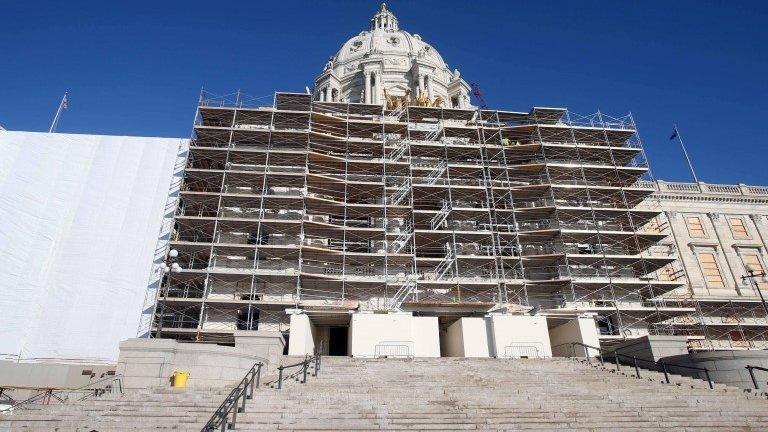State of the Union: Obama says economic crisis over
- Published
- comments
President Obama: "It has been, and still is, a hard time for many but tonight we turn the page"
US President Barack Obama has declared an end to the financial crisis and pledged economic policies to benefit all Americans, in his annual State of the Union address to Congress.
"Tonight, we turn the page," he said. "The shadow of crisis has passed, and the State of the Union is strong."
In a speech, external devised to appeal to working families, Mr Obama outlined his strategy for "middle-class economics".
But the plans are unlikely to make it past a Republican-controlled Congress.
Mr Obama also reiterated his foreign policy objectives, saying that the US reserved the "right to act unilaterally" when hunting down terrorists.
America had supported Ukraine throughout its battle with pro-Russia separatists, leaving Russia "isolated, with its economy in tatters", he added.
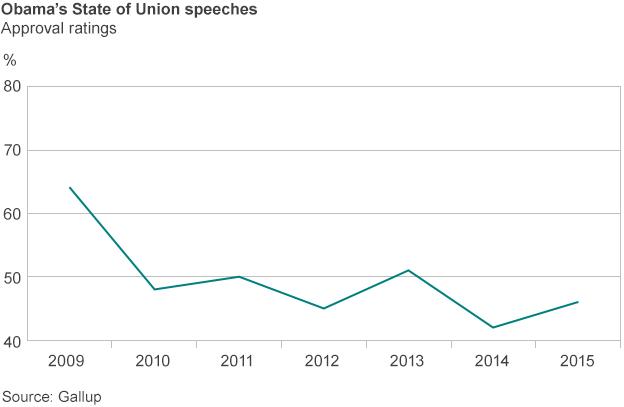
In a speech which he described as more focused on values than policies, Mr Obama declared America had recovered after the worst recession since the Depression.
The president said he planned to build on this growth by providing working families with help in the form of sick and maternity leave and affordable childcare.
"Will we accept an economy where only a few of us do spectacularly well? Or will we commit ourselves to an economy that generates rising incomes and chances for everyone who makes the effort?"
Arguing that the US had experienced its "fastest economic growth in over a decade", Mr Obama said: "The verdict is clear. Middle-class economics works."
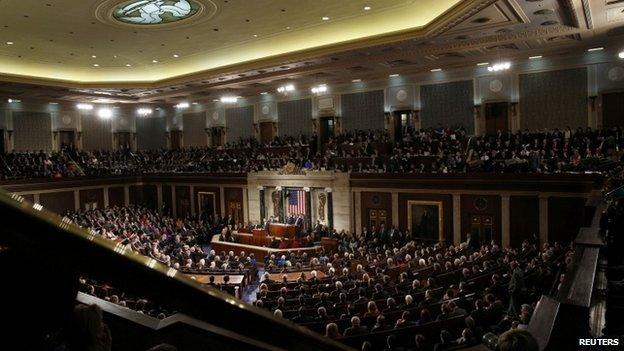
Mr Obama delivered his address to a joint session of the US Congress
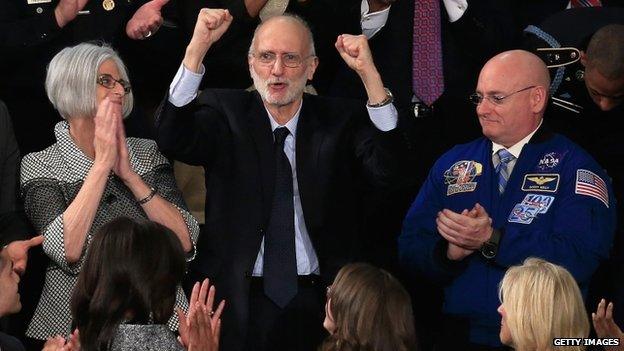
Cuban detainee Alan Gross received a standing ovation during the speech
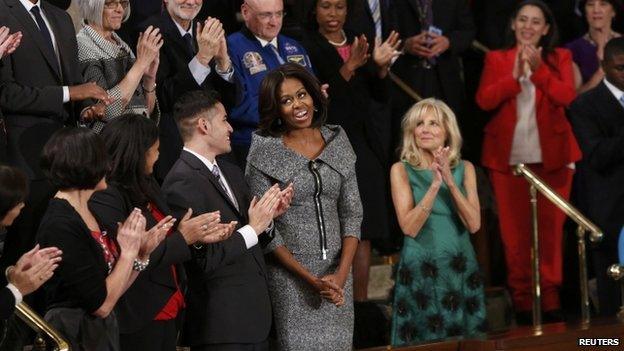
First Lady Michelle Obama had her moment of applause
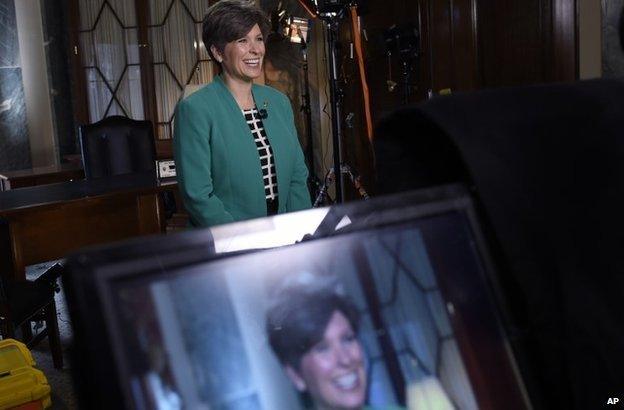
Joni Ernst rehearsing before her rebuttal
Mr Obama's speech included plans to build a competitive economy by improving America's infrastructure and providing free access to community college.
At the weekend, the White House also pledged to close tax loopholes on large inheritances, raise capital gains tax on the richest earners from 23.8% to 28% and introduce new fees on US financial firms with assets about $50bn.
Some senior members of the Republican Party dismissed this as "class warfare".
Other plans outlined by the president include:
Improve statutory sick leave and minimum wage
Stronger cybersecurity and consumer protection
Continue with plans to shut the prison in Guantanamo
Equal pay for men and women
Mr Obama said he would not hesitate to veto any Republican bills that sought to unravel his healthcare, financial regulation or immigration reforms.
The BBC's Katty Kay says the battle lines are still drawn between President Obama and the Republican-controlled Congress
On foreign policy, he called on Congress to pass a resolution to authorise the use of force against the Islamic State militant group.
On nuclear talks with Iran, the president reiterated his belief that an agreement could be reached to prevent the country from gaining nuclear weapons, and said he would veto any new sanctions bill that undermined negotiations.
He also said that his decision to begin normalising relations with Cuba, after ties were severed in 1961, had the potential to "end a legacy of mistrust in our hemisphere".
"We are ending a policy that was long past its expiration date. When what you're doing doesn't work for 50 years, it's time to try something new," he said.
Alan Gross, who was recently released after spending five years in a Cuban prison, was among Michelle Obama's guests to hear the president.
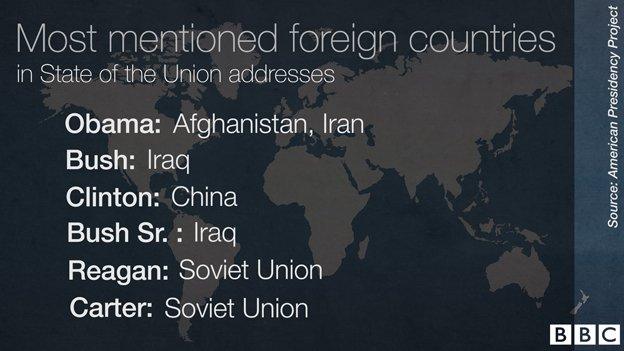
Foreign policy always plays second fiddle at this event but Obama said only 15,000 US troops remain in Iraq and Afghanistan
Mr Obama said that the US had successfully opposed "Russian aggression" in Ukraine by imposing sanctions, adding: "It is America that stands strong and united with our allies, while Russia is isolated, with its economy in tatters".
On Wednesday, Russian Foreign Minister Sergei Lavrov denounced the speech as an indication of what he said was the determination of the US to dominate international affairs.
Mr Lavrov said: "Obama's address yesterday shows that there's just one thing at the heart of [their] philosophy: 'We are number one'... It shows that the United States wants to dominate the world."

Analysis: Jon Sopel, BBC North America editor
Most of this speech must be seen as essentially aspirational, given the Republican control of both houses of Congress - and their antipathy towards the president
So if this speech stands little chance of becoming legislative reality, what was it all about?
First of all legacy. This is a president who seems to be following Winston Churchill's maxim that history is written by the winners.

'Best for America'
Ending his address, Mr Obama said he was optimistic he could work with Congress, despite months of political gridlock.
"I have no more campaigns to run. My only agenda for the next two years is the same as the one I've had since the day I swore an oath on the steps of this Capitol - to do what I believe is best for America," he said.
But consensus with the Republican Party on many of the issues he outlined is unlikely.
In their official rebuttal, external, Republican senator and rising star, Joni Ernst, said Americans had not seen solutions from Mr Obama, and criticised his health and immigration policies.
"Americans have been hurting, but when we demanded solutions, too often Washington responded with the same stale mindset that led to failed policies like Obamacare," she said.
The senator called on Mr Obama to work with Republicans on issues where they might have common ground - including a trade deal and tax code reform.
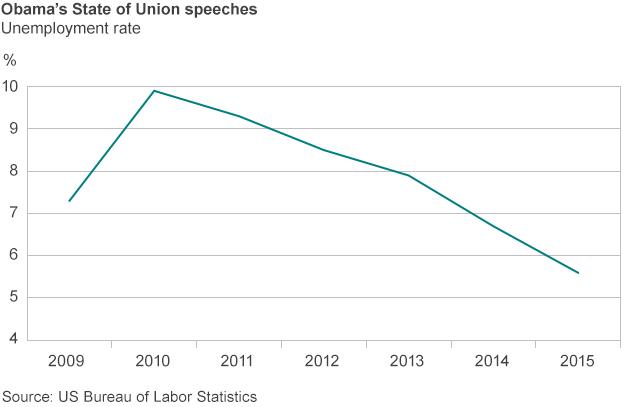
- Published21 January 2015
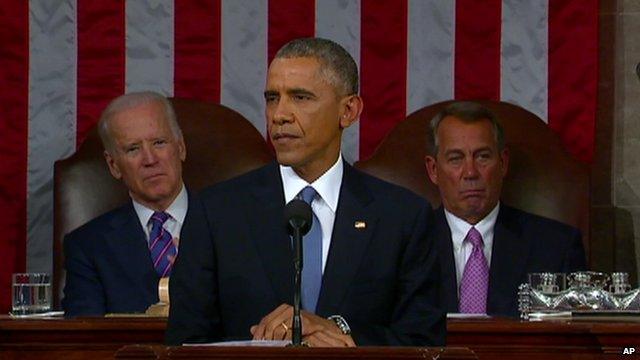
- Published21 January 2015
- Published21 January 2015
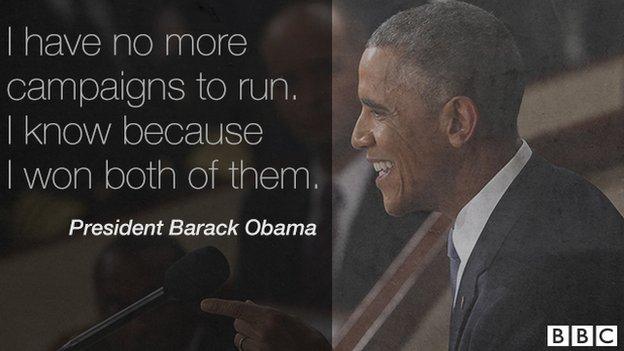
- Published21 January 2015
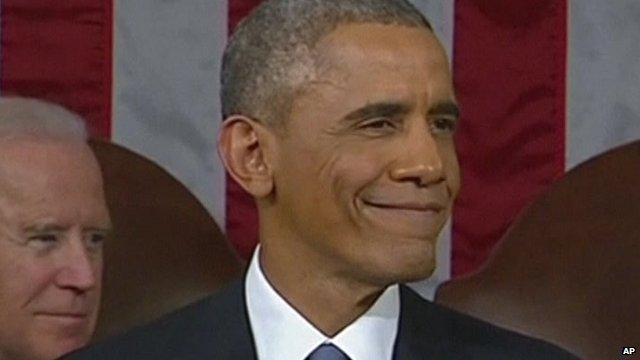
- Published21 January 2015
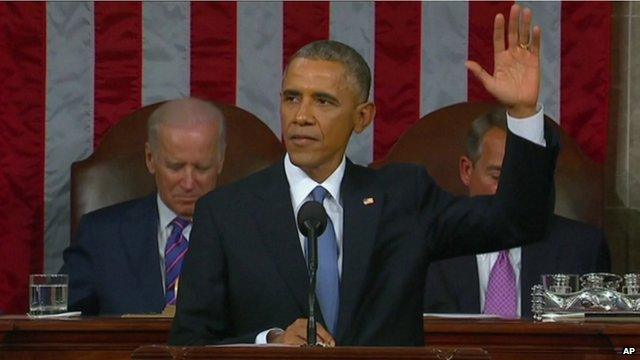
- Published21 January 2015
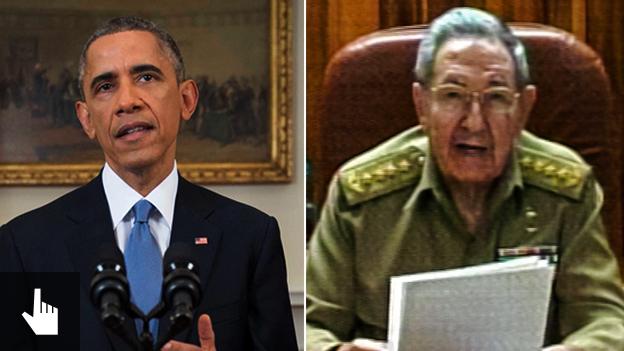
- Published20 January 2015
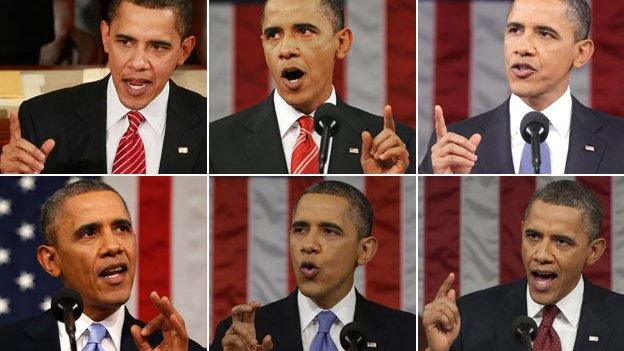
- Published18 January 2015
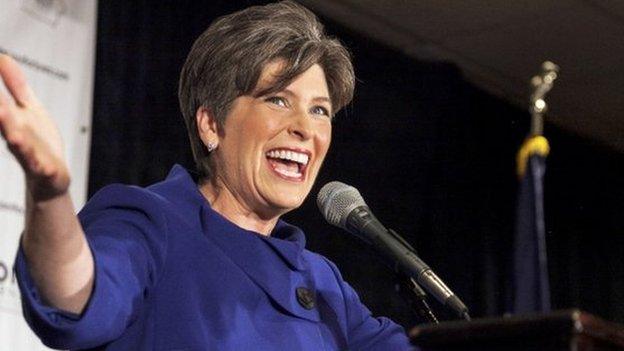
- Published20 January 2015
